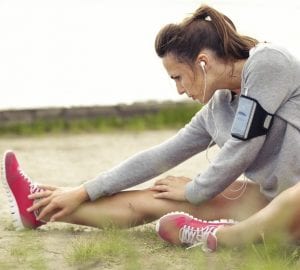Dizziness and other balance disorders are more common than you might think. Data from the American Speech-Language-Hearing Association shows that 40% of Americans will most likely experience balance problems at least once in their lifetime. It can occur in 8-18% of the pediatric population while in adults, around 4% reported chronic problems associated with balance
In a nutshell, balance problems include any condition that affects your balance or makes you dizzy. Having a normal balance may sound simple and basic enough that you often take it for granted, but it’s actually the result of the proper functioning of several body systems including the bones, soft tissues, muscles, and the vestibular system. Keeping your sense of balance and ensuring a stable posture is a complicated process.
Sensory-Related Signs and Symptoms
- Dizziness
- Lightheadedness
- Blurred vision
- Vertigo or a spinning sensation
- Faintness
- Feeling as if you’re about to fall
- Loss of balance
- Confusion
Common Causes of Balance Problems
The risk may increase with age but it can also result from a wide variety of conditions and other factors including the following:
- Arthritis
- Certain medications
- Head injury
- Eye muscle imbalance
- Low blood pressure
- Ear infection
However, keep in mind that balance difficulties can manifest even if you have no obvious underlying health problems which can make diagnosis more difficult.
Living with Balance Problems
Management of balance problems is mostly aimed at treating the cause of the balance problem. If the issue stemmed from the medication you’re taking, your doctor will probably lower the dosage or find an alternative. If the root cause is another medical problem, you need to get the disease treated.
Still, there are several things you can do at home to reinforce your treatment such as the following:
-
Lifestyle modification and diet changes. Whether you have a pre-existing health condition or not, it’s important to stay healthy as much as you can. This means getting enough rest and sleep, staying physically active, limiting alcohol intake, avoiding cigarette smokes, eating balanced meals, and drinking at least eight glasses of water a day. You may ask your doctor if there’s anything specific you need to include in your diet.
-
Don’t be afraid to work out. Just because you experience some dizziness doesn’t mean you have to stop exercising. You can ask your doctor for options but some of the most recommended exercises include Tai Chi and yoga. If your balance problem is caused by a musculoskeletal degenerative disease such as rheumatoid arthritis, you can also use resistance bands to perform leg-strengthening exercises. Research has shown that progressive resistance training has positive effects on patients with RA.
-
Talk to your family and friends and tell them what you’re going through. Aside from the emotional support, you can easily count on them during emergencies or if you need extra help.
-
Keep track of your symptoms. This will be helpful during your appointments with your doctor. It will also be easier to monitor and pinpoint any significant changes.
-
Beware of triggers. Take note of what triggers your balance problem and try to avoid those as much as possible. Sometimes, it can be as simple as bright lights and excessive noise.
-
Go slow especially when getting up from a sitting position or after lying down. This will help your body adjust slowly and therefore minimize your risk for dizziness and falls.
-
Use a bookstand when reading to keep your eyes steady and make sure there’s adequate lighting to avoid experiencing vision difficulty and straining your eyes. If reading a paperback is becoming challenging for you, try using eBook devices instead because you can easily adjust the font size and most newer models already have an anti-glare feature that makes reading easier for the eyes.
-
Install grab bars near your bed and on the walls of the bathroom. This is essential if you’re always getting up in the middle of the night to use the toilet. You may need something to hold on to if dizziness hits.
-
Use a mobility aid. If balance problems make it difficult for you to move, you might consider using a walker to help steady you as you walk.
-
Clear clutter so you don’t bump or trip over anything accidentally.
-
Find the right footwear that fits snugly. It should have adequate cushion and offer non-skid soles.
Experiencing balance problems can greatly affect your day-to-day living. Safety is top priority when it comes to home management since dizziness can pose a safety hazard, even when doing simple things like going down the stairs or using the bathroom. It’s best to consult with your doctor anytime you feel like symptoms are only getting worse.








